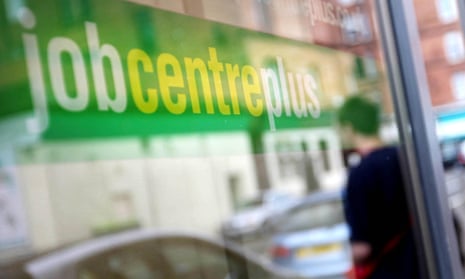The number of people being made redundant in the UK has risen at the fastest rate since records began as the economic fallout from Covid-19 and the scaling back of the government’s furlough scheme drives up unemployment.
The Office for National Statistics said the number of people being made redundant in the UK almost doubled in the three months to August, increasing by 114,000 to reach 227,000, as the shock from the Covid recession rippled through the jobs market.
The unemployment rate rose by more than expected to 4.5%, up from 4.1% in July, with the biggest increase in the jobless rate in more than a decade leaving 1.5 million out of work. Stoking concerns of a full-blown jobs crisis this winter after the furlough scheme ends, the figures showed the increase was driven by self-employed men losing their jobs and women working part-time falling out of the jobs market altogether.
Overall employment has fallen by 480,000 since the start of the year, with 16- to 24-year-olds accounting for 60% of the decline as the pandemic strikes a heavy blow for a generation of young people whose lives have been disrupted by the global health emergency.
Signalling that redundancies will peak at a higher level than in the 2008 financial crisis, as growing numbers of companies shed jobs in response to the economic shock, analysts warned unemployment would continue to climb during the second wave of Covid-19.
The news of the rise in unemployment came ahead of a virtual meeting of the International Monetary Fund at which the chancellor, Rishi Sunak, will call on fellow finance ministers to work together in he fight against the pandemic
Sunak will call for the burden on the world’s poorest countries to be eased by an extension of the debt suspension agreed earlier this year.
“No economy has been spared the effects of this crisis – and every recession brings the risk of countries turning inwards. Let’s work together to sow the seeds of recovery.”
Nye Cominetti, a senior economist at the Resolution Foundation thinktank, said: “With economic support falling just as lockdown restrictions increase across the country, we should prepare for a major increase in unemployment over the coming months.”
The figures come after the chancellor, Sunak, last week announced an expansion of the government’s job support scheme to replace furlough, in an attempt to save jobs at businesses forced to close their doors.
The chancellor had insisted throughout the summer that furlough would end in October, before staging an 11th-hour change in direction amid intense pressure last week as the government moved to launch the three-tier system.
However, business leaders and Labour warned the figures showed Britain’s labour market was already at its weakest in more than a decade and would require Sunak to provide further measures to protect jobs through the winter.
Anneliese Dodds, the shadow chancellor, said: “More people are going to lose their jobs until the government gets a grip. The chancellor’s chaotic habit of trying to fix problems of his own making at the last possible minute risks unemployment spiralling to levels we haven’t seen in decades.”
Responding to the figures, Sunak said: “I’ve been honest with people from the start that we would unfortunately not be able to save every job. But these aren’t just statistics, they are people’s lives. That’s why trying to protect as many jobs as possible and helping those who lose their job back into employment is my absolute priority.”
Despite grim prospects for Britain’s economy as the second wave of coronavirus takes hold, the latest figures from the jobs market also showed some signs of improvement over the summer months.
Figures from HMRC showed the number of staff on company payrolls rose by 20,000 in September, slightly reducing the total number of job losses recorded by the tax office since the start of the pandemic to 673,000.
There were some other potentially positive signs, including a record rise in the number of job vacancies in the three months to September, although the number of positions being advertised is still down 40% compared with a year ago.
However, business leaders warned the government would still need to provide further support to businesses and workers to protect jobs through a difficult winter with tough new restrictions in place. Tej Parikh, the chief economist at the Institute of Directors, said: “Job losses are likely to keep mounting as this turbulent year draws to a close.
“With the furlough scheme unwinding, cash-strapped firms have been forced into difficult decisions about retaining their staff. Demand remains weak and as restrictions ramp up again many businesses will be stretched when it comes to paying wage bills. The job support scheme may need to be beefed up if the government wants to avert further rises in unemployment.”
